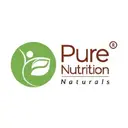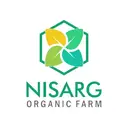Vitamin a supplements
7 products found

What's Up Wellness Eye Health Gummies with D-Alpha Tocopherol, Ginkgo Biloba Extract for Eye Protection and Reduce Eye Strain
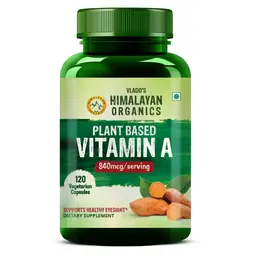
Vlado's Himalayan Organics PlantBased Vitamin A Supplement for Healthy Eye Sight
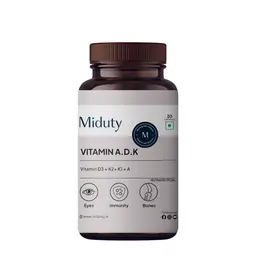
Miduty Vitamin A, D, & K for Eyes and Joint Health
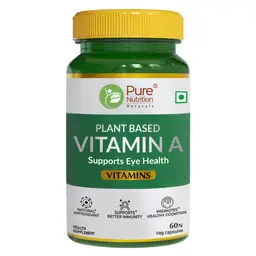
Pure Nutrition Plant-Based Vitamin A with Natural Antioxidants for Healthy Eye Sight
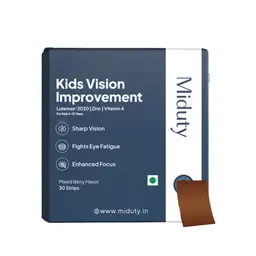
Miduty Kids Vision Improvement with Lutemax, Zinc for Sharp Vision and Fights Eye Fatigue
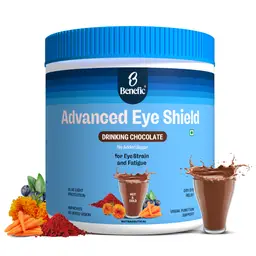
Benefic Advanced Eye Shield Chocolate Powder with Lutein, Zeaxanthin, Astaxanthin & Bilberry Extract for Repair and Protects against Blue Light Damage, Digital Strain and Dry Eyes
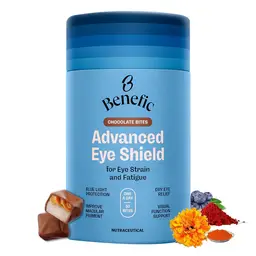
Benefic Advanced Eye Shield Chocolate Bites with Lutein, Zeaxanthin, Astaxanthin & Bilberry Extract for Protect against Blue Light Damage, Digital Strain and Dry Eyes
Vitamin a can help you with
Common questions for Lean about Vitamin a supplements:
FAQ
What are the top foods rich in Vitamin A?
The list of vitamin A-rich foods includes dark leafy green vegetables, like spinach, carrots, pumpkins, mangoes, papayas, sweet potatoes, and maize. On the other hand, there are few animal products, which are good sources of vitamin A, like Liver, eggs, and milk.
How does Vitamin A benefit the body?
Vitamin A-rich foods are highly beneficial for improving vision, boosting the immune system, nurturing the reproductive system, and maintaining the overall function of the liver, kidneys, lungs, and heart. Additionally, vitamin A supplements are helpful for skin health.
Which vegetables are high in Vitamin A?
Vitamin A fruits and vegetables include dark green leafy vegetables like spinach, amaranth, sweet potato, and carrots.
Can you get enough Vitamin A from a vegetarian diet?
Yes, Vitamin A-rich foods can be a good source to complete the daily recommended dosage. However, sometimes it is recommended to take vitamin A supplements to fulfill the demand for vitamin A in the body.
How much Vitamin A do you need daily?
The recommended daily dose of Vitamin A is between 700 mcg to 900 mcg.
Is it possible to consume too much Vitamin A from food?
Yes, it is possible to consume too much Vitamin A for those consuming more vitamin A than the daily recommended amount.
What are the symptoms of Vitamin A deficiency?
The symptoms of Vitamin A deficiency include signs related to vision, such as night blindness, blurred vision, double vision, dry eyes, hair loss, skin problems, and increased susceptibility to infections. Other symptoms of Vitamin A deficiency include skin changes, like cracks at the corner of the mouth, itching and peeling of the skin, along with hair loss.
How does cooking affect the Vitamin A content in foods?
Cooking does not affect the Vitamin A content in foods. However, when cooked in oil, Vitamin A from the food segregates and dissolves in fats and oils.
What are the benefits of Vitamin A for skin health?
Vitamin A-rich foods contain beta carotene and provitamin A carotenoids, which have antioxidant properties and flush out the free radicals from the body. These free radicals are responsible for breaking down collagen and causing fine lines and wrinkles. Additionally, Vitamin A, also known as retinol, plays a crucial role in new skin cell production, strengthening the outer layer of the skin and preventing the early signs of aging.
Can Vitamin A from food improve vision?
Yes, Vitamin A is essential for the retina in the eyes, which helps us to see in the darkness and adjust the light accordingly in low-light conditions.
Are there any side effects of consuming Vitamin A-rich foods?
There are no known side effects of consuming vitamin A-rich foods.
What is the difference between preformed Vitamin A and provitamin A?
Preformed Vitamin A, known as retinol, is present in animal sources like dairy products, meat, fish, fortified foods, and Vitamin A supplements. It is readily absorbed by the body. On the other hand, provitamin A, primarily in the form of carotenoids such as beta-carotene, is found in plant-based foods. Provitamin A needs to be converted into retinol by the body to be effectively absorbed.



